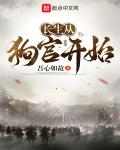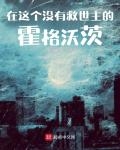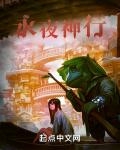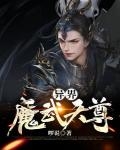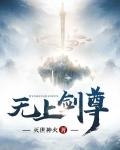Chapter 169: To the Hu Tui'en Order, an unprecedented national unified dynasty!
Su Che looked at these options and couldn't help but fall into deep thought...
1: Rule the world with benevolence and virtue.
This was Fu Jian's choice and his firm path.
In fact.
Fu Jian was not a brainless saint to have achieved what he has today.
He has his own persistence and his own choices, and he is not blindly kind.
It was precisely this strategy of treating people with sincerity that earned him the following of Wang Meng.
In the early days, Fu Jian had smooth sailing.
It was this smooth sailing that gave him an illusion.
It seems that as long as you have kindness in your heart, any difficulty can be solved.
But the facts have proved that as a monarch, especially a monarch in troubled times, it is obviously inappropriate to rule the country in this way.
Su Che thought for a moment and turned his attention to the second option.
Second, rule the world by law.
This is the path that Wang Meng insists on.
During the period when Wang Meng was in power, the Former Qin Dynasty was not entirely based on Confucianism and Taoism, but rather Confucianism and Legalism were practiced in parallel.
If Fu Jian represents the role of Confucianism, then Wang Meng represents the role of Legalism.
Under Wang Meng's governance, the country was in good order.
It was not until the death of Wang Meng that the governance plan of the Former Qin Dynasty changed from a combination of Confucianism and Legalism to a complete leaning towards Confucianism and Taoism.
This is definitely the wrong way to go!
Su Che subconsciously wanted to choose this option.
But think about it, governing the world by law and simply having strict laws are not the best option.
Combining Confucianism inside and Legalism outside is more appropriate and has been the choice of rulers of all dynasties.
If I choose the second one at this moment, does that mean I have abandoned my original Confucianism?
If the Former Qin Dynasty could become a country ruled by law like the Qin Dynasty.
Bring out the military merit system.
Enforce strict laws.
Even the collective responsibility system and various corvée systems...
If the Former Qin Dynasty was transformed into a classical military state like the Qin Dynasty, it would certainly become very powerful, but correspondingly, it would go to another extreme.
Obviously, if this option is chosen, it will go against Fu Jian's philosophy.
This is probably not what Fu Jian wants to see...
This is also the point that Su Che hesitated.
Su Che shook his head slowly.
He did not rush to make a decision, but instead looked at the third option.
3. Indulge in pleasure?
Su Che was stunned.
Can such a heaven-defying choice come out?
Perhaps this choice will also produce some wonderful effects?
If it was the wrong option, it couldn't be so obvious!
Maybe it will have miraculous effects?
For example, after indulging in pleasure, some people with ulterior motives reveal their weakness, and then you take the opportunity to arrest them?
I have to say.
It's not impossible!
But choosing this one is obviously a gamble.
at last.
Su Che still turned his gaze to the fourth one.
4. Intervene personally.
Su Che couldn't help but wonder, if I were to do it myself, would I be able to handle this bad situation?
The Former Qin Dynasty had many problems.
The most important conflict is between the Hu people and the Han people.
During this period, racial conflicts intensified to an unprecedented level. Due to the weakness and incompetence of Jin, the ethnic minorities in the north became increasingly arrogant and domineering.
Whether it is the Xianbei, the Jie, the Xiongnu, etc.
The Hu people went south, killing, burning, looting, and doing whatever they wanted.
This period can be said to be a living hell for the Han people.
Among them, the Jie tribe was even more cruel and insane.
They did not carry any food or fodder with them during their march, but instead brought tens of thousands of Han women with them.
They called these people "two-legged sheep". They used them to satisfy their sexual desires at night and cooked and ate them during the day.
With this extreme marching method, the Jie tribe gained their own place in the north and established the Later Zhao.
More than two-thirds of the death toll was directly caused by the cruelty of the rulers.
From Chang'an to Luoyang and then to Yecheng, the roads along the way were filled with farmers who had committed suicide by hanging. The scene was extremely spectacular.
In such a chaotic world, it is extremely difficult to deal with the racial hatred between the Han and Hu peoples.
But even though he knew it was so difficult and arduous, Fu Jian still did it and created the only peaceful and prosperous era among the Sixteen Kingdoms of the Five Barbarians.
Such an idealist, his charm is hard to conceal.
His story with Wang Meng is a replica of that of Liu Bei and Zhuge Liang, and they have staged a "different me in this world" event in the long river of history!
Unfortunately, such idealists are ultimately just a flash in the pan, like a brief ray of light in this chaotic, disorderly and inhumane world.
If he had been completely successful, perhaps his achievements would have been comparable to those of the First Emperor.
The former unified the world, making the writing system the same, the wheel gauge the same, the weights and measures the same, and the currency the same. His crimes were committed in his own time, but his achievements will last for thousands of years.
The latter if it succeeds.
Stage the great integration of ethnic minorities and Han people in advance to create a truly harmonious world, so that the Hu people will no longer be a problem for China, but will shake hands and make peace, and become one family from then on.
As long as such a precedent is set, the course of history may be changed.
Just like Qin Shihuang unified the world and became the first emperor, everyone wanted to be emperor since then.
Under Fu Jian's rule, all ethnic groups were unified, and perhaps all would be unified in the future.
In this way, without the existence of the foreign enemy, the Chinese civilization might have taken a different path.
Such an era of a unified nation is a completely different concept from the later era when ethnic minorities were the rulers, intermarriage was prohibited, and there was a simple ruling aristocracy.
but.
Such a beautiful fantasy, the world of great harmony that Fu Jian longed for, was ultimately not realized.
One is a question of the times, and the other is a question of ability.
As an emperor, Fu Jian was still somewhat lacking in ability. Compared with those famous founding monarchs, he was still far behind.
Su Che looked at the four choices, hesitated for a while, and finally made a decision.
Intervene personally!
Choose one out.
When I opened my eyes again, I saw an unfamiliar palace. It was not luxurious and most of the decorations were simple.
This was the result of Fu Jian's specific instructions.
After he ascended the throne, he lived in harmony with the people, encouraged them to engage in farming and sericulture, and set an example himself by going to the fields to farm the land himself, while the empress raised silkworms and wove silk herself.
In addition, Fu Jian also built water conservancy projects, reduced land rents, banned extravagance, and concubines in the harem were not allowed to wear silk, and all clothes were not allowed to drag on the ground.
He also set an example himself by decorating the palace in a simple manner.
In terms of culture, Fu Jian promoted Confucianism and established the Imperial College seriously.
He personally visited the Imperial College, inquired about the school's management, and examined the students' learning situation and their living environment, such as food, accommodation and transportation.
He even gave the Imperial College's cafeteria a thorough overhaul because a student had eaten a rat.
Although in this era, rats were not uneaten. On the contrary, they were very popular. They were one of the few meats that the lower-class farmers could access.
But this is not a country school, but a national academy. The occurrence of such a situation only proves that the environment in the canteen’s kitchen is very poor.
After hearing about this incident, Fu Jian became furious. He directly dismissed the relevant personnel and carried out severe rectification.
Although he was a benevolent emperor who ruled the country with Confucianism, it did not mean that he was really a wimp. He still had the necessary courage.
Su Che sat on the stool, carefully digesting all the memories of this body and everything in this world.
Then.
He summoned Wang Meng directly.
Not long.
When Wang Meng came over, Su Che stood up and pulled Wang Meng to sit down.
Wang Meng, who had already reached the highest position in the country, did not say anything polite and just came over and sat down.
As soon as he came up, Wang Meng said helplessly: "Your Majesty, I have a lot of things to deal with. Why do you summon me again and again? How can I complete what I should do?"
Su Che smiled silently. As far as he could remember, Fu Jian had just met Wang Meng a few hours ago, and the two discussed some national affairs.
As a result, Su Che summoned him again, which made Wang Meng, who was eager to deal with various things, inevitably a little anxious and angry, and even "blamed" his monarch at this moment.
Such conversations were not uncommon between the two, and there were more serious accusations, but their relationship had always been good.
In Confucian philosophy, this kind of relationship is actually abnormal.
The relationship should be that the ruler is the ruler, the minister is the minister, the father is the father, the son is the son, the lower ones should be loyal and filial to the upper ones, and the upper ones should be kind and loving to the lower ones.
In the view of the pre-Qin Legalists, the relationship between the monarch and his ministers is one of exploitation and being exploited. The emperor must maximize the value of his ministers, but he must also be wary of and guard against his ministers' autocracy and theft of supreme power, thereby undermining the emperor's power.
In the feudal era, the relationship between the monarch and his subjects also became contradictory.
When the situation requires, the two are like fish and water, water and boat.
But most of the time, either you are too successful to be a threat to your master, or serving the master is like serving a tiger, or it is either you die or I die.
In many such negative situations, the close trust and relationship between the monarch and his subjects become even more precious.
For example, Liu Bei and Zhuge Liang.
Another example is Fu Jian and Wang Meng.
In fact.
The relationship between Liu Bei and Zhuge Liang is not as good as that between Fu Jian and Wang Meng. The relationship between the two is rare in history.
Historical records show that Fu Jian was a man of good judgment and quick to accept good ideas. Wang Meng had the talent of a king's assistant and was eager to make progress. The relationship between the king and his subjects was considered to be a once-in-a-millennium event.
Su Che naturally knew all this at this moment
Facing the monarch's concern, Wang Meng's expression eased a little, then he shook his head and said, "State affairs are busy, there are too many things to do and monitor, and there are too few people I can trust. I have to do many things myself."
"The Imperial Academy has been preparing for several years, and some talented people should emerge. Then you will be able to relax a little." Su Che said with a smile.
"Taixue? It will take at least a few more years for those green-headed boys to become successful. I don't know if I can see that scene before I die." Wang Meng shook his head and sighed.
"National affairs, a slight mistake can lead to a huge error, we must take it seriously. Those brats from the Imperial College, who haven't read many books, dare to point fingers at my policies..."
"People who talk lightly about national affairs should never be entrusted with important tasks, no matter how talented they are. Only those who are calm and think twice before acting can be given important positions."
Wang Meng kept complaining. His previous style of doing things was classic Legalist style, and many of his policies were very harsh.
This also caused criticism from the students of the Imperial College, who believed that Wang Meng's power was too high and had affected the monarch.
Wang Meng now holds many positions. It is no exaggeration to say that he has great power both inside and outside the country and is able to cover the sky with one hand. He is almost as powerful as Cao Cao.
A tree that stands out in the forest will be destroyed by the wind. He has such great power in a short period of time, and there are too many people who are jealous of him. At the same time, he is ruthless and has strict rule of law. No matter who you are, you will be governed by the law. He has countless enemies.
A few years ago, he was transferred from the Internal History to the positions of Shizhong, Zhongshu Ling, and Jingzhao Yin.
Because it was heard that the noble minister Qiangde was drunk and violent, robbing men and women without any scruples.
But no one dared to "trouble the Empress Dowager" because he was the Empress Dowager's younger brother.
As a result, Wang Meng didn't care at all. He immediately arrested Qiang De and executed him without waiting to report to the emperor.
By the time Fu Jian sent someone on horseback with a letter of amnesty because of the empress dowager, Qiangde had already been "left dead in the market".
Afterwards, Wang Meng worked closely with the Chief Censor Deng Qiang to conduct a comprehensive and thorough investigation of the officials and ministers who had harmed the people and disrupted the government. With one move and without any scruples, they eliminated more than 20 lawless and powerful people in the blink of an eye.
As a result, all officials were shocked and solemn, the nobles held their breath, no one picked up lost items on the streets, and the orders were carried out!
Then, Wang Meng ordered Fu Jian to select capable officials to inspect the four directions and the barbarian areas, investigate and punish the misdeeds of local officials such as improper punishment and abuse of the people, and rectify the local ruling institutions at all levels.
Wang Meng's innovative measures directly brought about a brand new atmosphere.
In this chaotic world, Qin was peaceful and stable, families were well-fed, and the people lived and worked in peace and contentment.
Sometimes children sang:
"The streets of Chang'an are lined with poplars and locust trees; magnificent carriages run below and phoenixes live above; talented people gather here to teach our people."
"A strong army and a rich country will lead to peace and prosperity. This is the power of strength!"
In the chaotic times of the Five Barbarians and Sixteen Kingdoms, it was truly rare to see such a scene.
This is Wang Meng’s style, using severe punishments in troubled times and taking drastic measures to treat serious illnesses!
The biggest reason why Wang Meng could act so recklessly without having to worry about his retreat was that he had Fu Jian, the monarch who trusted him unconditionally, standing behind him.
But it was precisely this style that caused people with ulterior motives to maliciously slander him, leaving him with a bad reputation among nobles and scholars.
Wang Meng also looked down upon those people.
How can we govern the country with insects like you?
Su Che listened to Wang Meng's complaints carefully without interrupting.
Wang Meng talked for a long time, roughly recounting all the troubles he had encountered recently.
Most of these things are small matters, including matters concerning the Han people, matters concerning the Di people, and matters concerning other Hu peoples.
A few hours ago, Wang Meng did not say these things because they were just trivial matters and were not worth talking about.
But now, Su Che did not discuss national affairs with Wang Meng, so he told these things.
After Wang Meng finished speaking, Su Che began to offer his own solution.
Wang Meng was stunned and listened carefully.
After pausing for a while, Wang Meng couldn't help being a little surprised. Although these were mostly trivial matters, it was precisely because of this that they were difficult to deal with. They were like chicken ribs, tasteless to eat but a pity to throw away.
If you invest too much and deal with those small things, you are putting the cart before the horse.
But if the problem is not dealt with, it will always be a trouble.
So Wang Meng still had a headache about this.
However, what he didn't expect was that the monarch actually gave him a solution? !
This kind of thing has rarely happened before.
Wang Meng listened carefully and his eyes suddenly lit up. He thought that the solutions given by Su Che were very innovative and might be worth a try.
"Your Majesty, this is a really good idea. I'll try it when I get back." Wang Meng said with a smile, "You are really amazing!"
"These are just some trivial matters, what do they matter?" Su Che smiled and said, "What you helped me deal with are all national affairs, which cannot be compared at all."
"Your Majesty, what you said is wrong. Governing a big country is like cooking a small fish. If you can't even solve those small problems, how can you govern a country? I am far inferior to you, Your Majesty!" After hearing the praise, Wang Meng immediately started to flatter each other.
Su Che smiled and continued, "Let me tell you another story."
Then Su Che began to tell the story of Zhuge Liang and Sima Yi.
Zhuge Liang was far superior to Sima Yi in both state governance and military talent.
But the final winner was Sima Yi.
Not only did he survive to the end and annex the Kingdom of Shu, he even stole the kingdom of Cao Wei, replaced it and became the emperor.
"What does this story tell us?" Su Che asked with a smile.
Wang Meng said without hesitation: "Good people don't pay with their lives, but evil deeds will last for thousands of years!"
Su Che: “…”
Seeing Su Che's speechless expression, Wang Meng suddenly laughed and said, "I understand what your Majesty means. You want me to pay attention to rest and health preservation. I must not be like Zhuge Liang."
"No." Su Che shook his head and said seriously: "What I mean is that you are my Zhuge Liang. If Zhuge Liang lived a few more years, perhaps he could help Shu Han unify the world."
"If you could live a few more years, Jinglue, maybe you could help me unify the world."
"What do you think?"
Hearing Su Che's words, Wang Meng's breathing became heavier. He nodded heavily, indicating that he agreed with Su Che's opinion.
In fact.
Even if Zhuge Liang lived a few more years, it would not necessarily help Shu Han unify the world.
But if Wang Meng lives a few more years, he might really have this opportunity.
This is also why Su Che reminded Wang Meng to take care of his health and not to work too hard. Staying up late all day, not only is it 996, but he also has to work overtime. Who can stand this?
The reason why Wang Meng died at the age of 51 was because, like Zhuge Liang, he worked tirelessly until his death.
"I'll pay more attention." Wang Meng nodded and said.
In order to realize his ambitions and achieve his true aspirations, Wang Meng decided to take a break occasionally, but only occasionally.
There was no way, there were simply too many things he needed to do.
"If we unify the world in the future, does Your Majesty have any good ideas on how to deal with the relationship between the Hu people and the Han people?" Wang Meng looked up at Su Che and suddenly asked.
This statement is very direct and goes straight to the heart of the problem.
Wang Meng is Han Chinese.
But Fu Jian was a Di people.
After all, the Former Qin was a Hu regime.
so.
No matter how well Fu Jian treated his people, if he did not have a good policy to resolve the inter-ethnic relations, there would definitely be chaos in the future.
As long as Fu Jian is alive, there will naturally be no problems in the short term.
But as long as Fu Jian dies.
Even if Fu Jian had relevant policies, the situation of the policy being discontinued after his death would occur.
By then, the world will continue to be in turmoil and chaos...
Su Che listened to this and pondered seriously, then said: "I have some superficial ideas, which are not particularly perfect. I don't know if they are feasible. Are you willing to listen?"
"I'd like to hear the details!" Wang Meng nodded quickly.
Afterwards, Su Che slowly talked about his own policies and the solution to the racial issues between the Han and Hu peoples.
"First of all, the Hu people and other ethnic minorities need to have a certain degree of autonomy."
"Autonomy?" Hearing this, Wang Meng frowned: "If we let them govern themselves, chaos will arise sooner or later..."
"Autonomy is political autonomy, not military autonomy. If the military and politics are integrated, it will naturally be impossible to allow them to have complete autonomy." Su Che shook his head and said lightly.
Wang Meng also knew that he was anxious and should not rush to make judgments. At this moment, he nodded and continued to listen.
"So-called autonomy means that under the premise of the unified command of our Great Qin, each minority ethnic group will implement local regional autonomy."
"If those ethnic minorities are too large, then divide them up, trace their roots, set up tribes, and let them govern themselves according to their original tribes!!"
Su Che's words were like thunder. Wang Meng had not realized the key to self-government at first. When he heard this, his eyes widened and he said in surprise, "Enfeoffment Order?"
"Yes, it is the Enfeoffment Order!" Su Che nodded.
"This Enfeoffment Order...is it really feasible?" Wang Meng frowned. This is a policy towards the Han people. Will it also be useful towards the Hu people?
Su Che smiled slightly and said slowly:
"Sir, you may not know much about the history of the Hu people. In the ancient pre-Qin era, the tribes on the grasslands were mostly a few hundred or a thousand people, like a pile of loose sand, and could not form a climate."
“But the development of history is often very interesting.”
"In order to prevent small-scale Hu people from looting, the Han people built the Great Wall on the border."
"Because of the existence of the Great Wall, we can once and for all prevent the Hu people from plundering the south..."
"But it is precisely because of this that the Hu people were forced to develop further. It can be said that the existence of the Great Wall indirectly eliminated the Hu people in small tribes."
"The Hu people can only survive, break through the Great Wall, and continue to plunder if they stick together."
"That's why the Hu people are definitely not a monolithic group. Once this decree of favor is issued, it will give them the right to self-govern, manage their own ethnic group, handle all matters, and be the master of their own house... They will definitely not refuse such rights!"
"The basis of their autonomy comes from the permission of the Great Qin Empire... In other words, all local autonomy is an inseparable part of the Great Qin Empire, and all ethnic autonomous institutions must obey the unified leadership of the Great Qin Empire!"
"Therefore, the autonomy of each region must be based on national unity and territorial integrity."
"All under heaven belongs to the king, and all the people in the world are his subjects!"
"All Han people and all Hu people are one family! We should all unite together!"
"Whether they are Han or Hu people, they are all treated equally."
"The Qin Dynasty swept across the world and unified the country."
"My Great Qin can also unite the world and create an unprecedented unified dynasty of many nations!!!"

